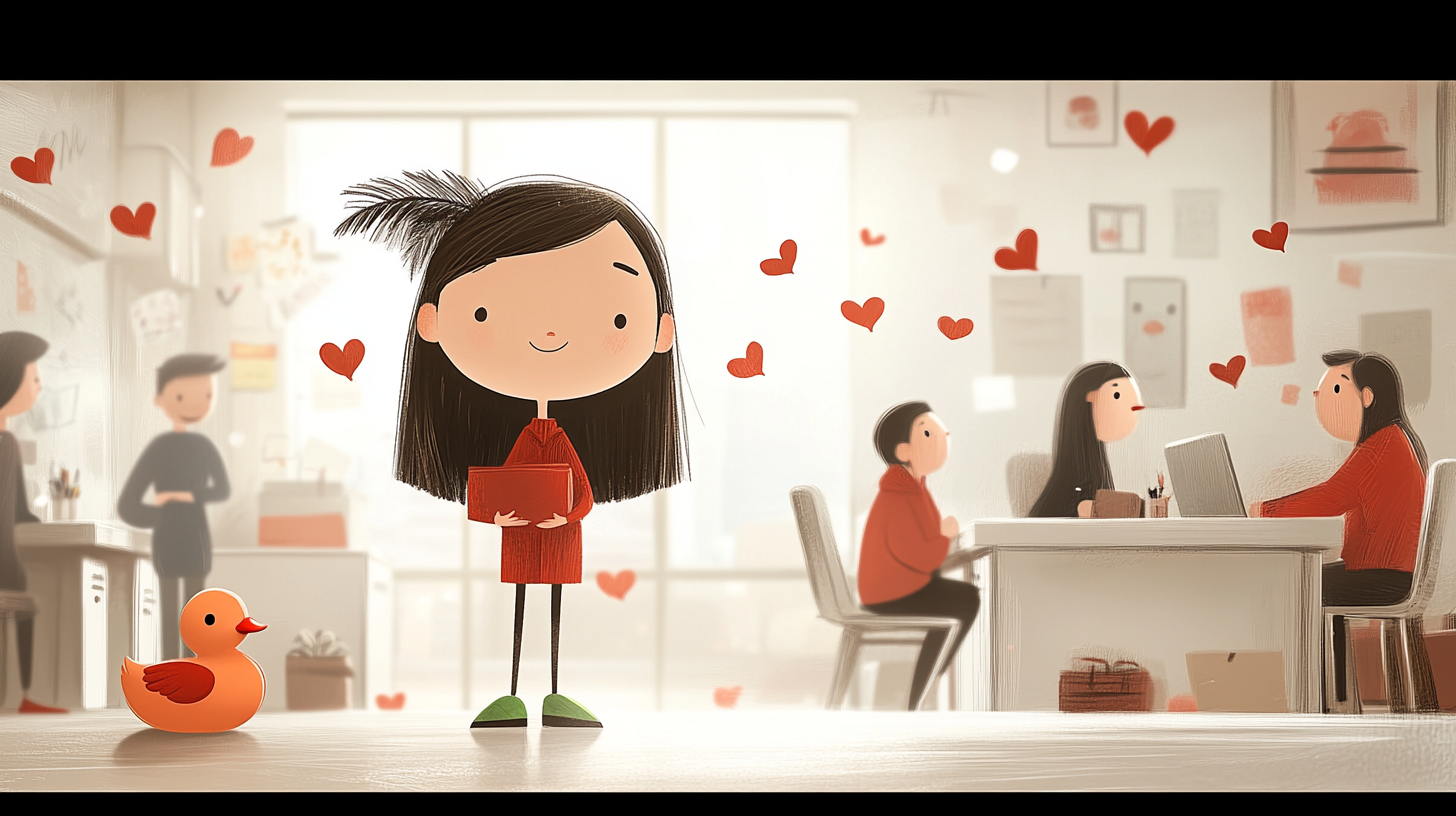“Weird” means something very strange.
以下は英単語 “weird” に関するストーリー型学習コンテンツです。まずは大枠の意味を理解して最後の文章で確認しましょう。
主な意味(main meaning)
| 品詞 | 意味 | 発音記号(IPA) | 英語例文 |
|---|---|---|---|
| 形容詞 | 変な、奇妙な | /wɪrd/ | That movie was so weird that I couldn’t understand it. |
語源(etymology)
「weird」は古英語の wyrd(運命)に由来し、もともとは「運命に関わる不思議な力」を意味していました。そこから転じて「不思議な」「普通じゃない」という意味になりました。
類義語(synonyms)
| 類義語 | 英語例文 |
|---|---|
| strange | This food tastes strange, but I like it. |
| odd | He’s wearing an odd hat today. |
| bizarre | The painting has a bizarre style. |
| unusual | It’s unusual to see snow in April. |
| quirky | She has a quirky way of decorating her room. |
「weird」と「strange」はどちらも「変な」「普通じゃない」という意味を持ちますが、ニュアンスに微妙な違いがあります。
| 比較項目 | weird | strange |
|---|---|---|
| ニュアンス | 不気味さ・超自然的・奇妙すぎる印象 | 予想外・慣れていない・ちょっと変 |
| 感情の強さ | 強め(時に不快感やおかしさを含む) | 弱め(中立的〜やや驚き) |
| よく使う場面 | 夢・行動・音・匂いなど「説明が難しい奇妙さ」 | 見た目・状況・偶然の出来事などの「ちょっと変」 |
| 和訳の傾向 | 「奇妙な」「変てこな」「怪しい」 | 「変な」「見慣れない」「不思議な」 |
反義語(antonyms)
| 反義語 | 英語例文 |
|---|---|
| normal | Everything seemed normal at the office. |
| ordinary | He had an ordinary day with nothing special. |
コロケーション(collocations)
| コロケーション | 英語例文 |
|---|---|
| weird dream | I had a weird dream last night. |
| weird feeling | I got a weird feeling when I entered the room. |
| weird noise | We heard a weird noise coming from the basement. |
| weird behavior | His weird behavior worried his parents. |
| weird smell | There’s a weird smell in the kitchen. |
| 英文 | 和訳 | 解説 |
|---|---|---|
| That man is weird. | あの男の人はなんか変。 | 行動や雰囲気が普通じゃない、ちょっと怖い感じも含む。 |
| That man is strange. | あの男の人は変わってるね。 | 変わってるけど、そこまで不気味ではない印象。 |
| I had a weird dream. | 変な夢を見たよ。 | 非現実的・奇妙な夢、ちょっと怖かったかも。 |
| I had a strange dream. | ちょっと変な夢だった。 | いつもと違う夢で、違和感がある程度。 |
2項表現(binomials)
| 2項表現 | 英語例文 |
|---|---|
| strange and weird | The story was both strange and weird. |
| weird and wonderful | The museum was full of weird and wonderful things. |
英語ストーリー(english story)
Title: The Weird New Intern
Last Monday, we got a new intern at our office. His name was Leo, and from the moment he walked in, everyone noticed something strange and weird about him. He wore bright green shoes, had a hat with feathers, and always carried a rubber duck in his bag.
At first, people thought he was just trying to be quirky. But then we started hearing weird noises from the break room. One day, someone found a strange drawing of a cat wearing sunglasses on the fridge. “This is getting bizarre,” my coworker said.
Despite his odd behavior, Leo was actually very good at his work. He finished tasks faster than anyone and came up with unusual but smart ideas. Our boss, who usually prefers ordinary and normal workers, was surprised but impressed.
One day, I asked Leo, “Why do you act so weird?”
He smiled and said, “Being weird helps me think outside the box. And besides, being normal is boring.”
After that, I started to understand him better. I even had a weird dream that night about working in an office full of ducks and talking chairs.
In the end, we all agreed that Leo was weird and wonderful.
和訳
タイトル:変わった新しいインターン
先週の月曜日、私たちの職場に新しいインターンが来ました。彼の名前はレオで、最初に入ってきたときから、みんな彼がちょっと変だと気づきました。彼は明るい緑色の靴を履き、羽のついた帽子をかぶり、いつもゴムのアヒルをバッグに入れていました。
最初は、ちょっと個性的なだけだと思っていました。でもそのうち、休憩室から変な音が聞こえるようになりました。ある日、冷蔵庫にサングラスをかけた猫の絵が貼ってあったのです。「これはちょっと奇妙すぎるね」と同僚が言いました。
変な行動をする一方で、レオは仕事がとても早く、頭の良いユニークなアイディアを出してくれました。普通が好きな上司でさえ、驚きつつも感心していました。
ある日、私は彼に「なんでそんなに変なの?」と聞きました。
すると彼は笑って、「変でいると、普通とは違う発想ができるんだよ。それに、普通って退屈じゃん」と言いました。
その日から、私は彼のことを少し理解できるようになりました。夜には、アヒルと話す椅子が出てくる職場の変な夢まで見てしまいました。
最終的に、私たちはみんな「レオは変だけど、すてきだ」と思うようになったのです。



コメント